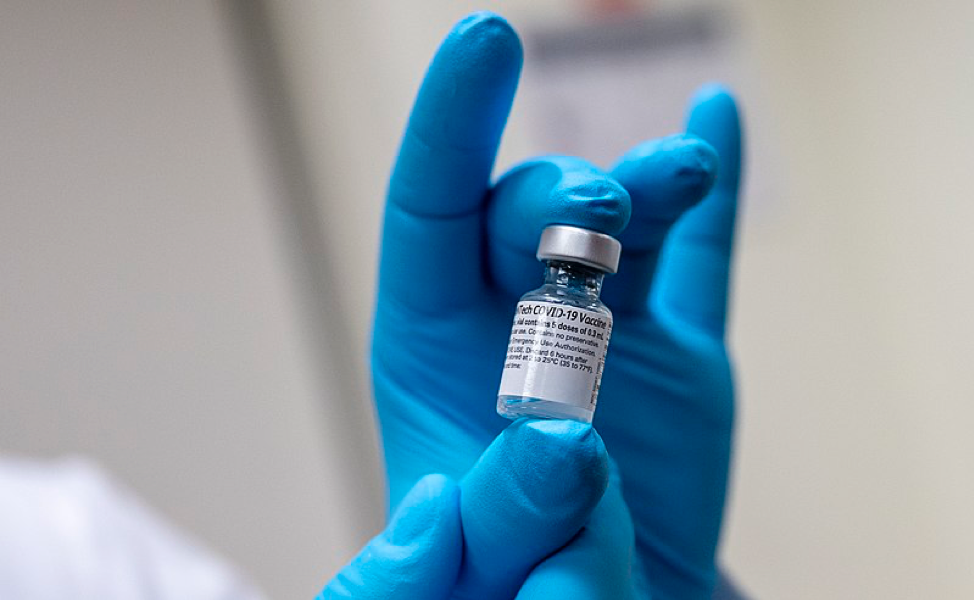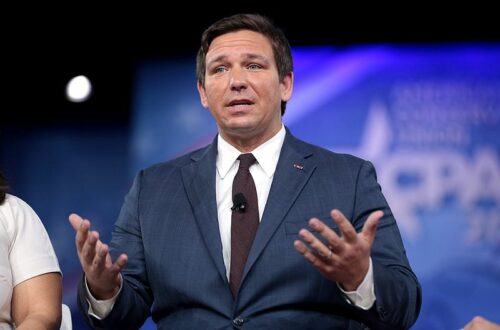Florida Gov. Ron DeSantis continues to face a nearly impossible challenge: protect and vaccinate Florida’s disproportionately large vulnerable population amid a global health crisis while simultaneously painting a scene of tranquility that is not only inviting but reassuring to a downsized tourism market.
By the end of the second quarter of 2020, the latter part of DeSantis’s challenge grew even more dire, with nearly 20 million fewer visitors than the year previous. Even with relatively lax COVID-19 restrictions, the absence of a whole sector triggered a reaction in the Florida government. DeSantis continued to open the state, even though Florida was bracing against a major case-spike when DeSantis initiated Phase 3 of Florida’s reopening plan.
In a blatant disregard for the current circumstances of the global situation, DeSantis opened the arms of Florida to accept anyone and everyone who wanted to see her sparkling waters and soft-sanded beaches. The implementation of Phase 3 was the governor’s way to mark the end of a dark period in American history where 13,915 Floridians died.
There were two detracting problems with DeSantis’s plan: people still weren’t comfortable or economically able to spend money on a vacation, and the pandemic was nowhere near completion.
Due to the inherent volatility of the tourism industry, no amount of government encouragement was going to restore enough trust to bring back millions of tourists to one of the worst COVID-19 effected areas in the world.
Although Florida was open by September, the rest of the world had reservations that the governor dismissed in favor of a faster recovery. The response, realized in depressed returns from the tourism sector, equates to a major lose-lose situation. The governor hedged his bets on prioritizing the economy over health precautions with the preconceived notion that the industry would respond eclectically, only to have his plan backfire on marginalized gains and one of the deadliest COVID-19 spikes in the U.S.
The hope that tourism would return to pre-pandemic levels by the end of 2020 was thwarted by figures that still placed tourism numbers 30% below the previous year’s third quarter reports. While the results were better than the previous two quarters, the rising death toll corresponded to the new influx of tourists. Even with this knowledge, the governor continued to shape the state’s COVID-19 response to best suit tourism figures.
The hauntingly low numbers outline a bleak future for a sector that is notoriously unhurried to recover. In the face of national disasters, global depressions, or recessions, tourism regresses quickly and takes upward of a decade to recover; the Great Recession of 2007 and B.P. Oil Spill are examples of such.
Since tourism is responsible for 15% of the state’s sales tax revenue, a prolonged period of weakened tourism can cascade into a more severe recession. The deceleration of one of the state’s largest sectors was slowing the economy further, yet DeSantis continued to go all-in on his strategy of pushing for tourism to jump-start a quickly stalling economy.
If not before the major let down that was the third quarter, the global trend was now obvious: people would not feel safe traveling until there was a reliable and widely available vaccine. Coincidentally, DeSantis could provide both of those factors by the beginning of 2021.
In seeing what precedent and current figures warned, DeSantis’s attempt to save an economy set for at least three years of impotence amounted to a short-lived policy-born-out-of-loophole known as ‘vaccine tourism.’ For nearly a month, senior citizens from across the country were able to travel to Florida and get the vaccine at the direct expense of full-time Florida residents.
Vaccine tourism is a morally absent method of propping up tourism numbers by exploiting the need for proper distribution of the vaccine at the expense of those who need it. What good will it do for Florida citizens to vaccinate tourists who will only travel to the state for the vaccine and then leave? Instead of Florida residents who run the economy, 58% of whom are over 50 years old, other states’ populations were taking advantage of Florida’s unique prioritization of the elderly instead of essential workers.
Florida’s residents were taking a backseat to tourists to mollify wary investors’ concerns about Florida’s economy. The lives of teachers, professors, essential workers and immunocompromised members of society were put at risk, especially because there are still not enough vaccines in Florida to vaccinate everyone.
No context justifies the decision of prioritizing residents of another state for getting the vaccine just because they are over age 65, and the sickness and deaths of the Florida workforce that result from that decision will go further in entrenching the economy in turmoil rather than raising it from the valley.
The continuation of the loophole for nearly a month exposed DeSantis’s outright disregard for the people of Florida for the sake of kick-starting a nationally vegetative economic sector. It also showed the governor’s strong intentions to enact an economy-first recovery.
DeSantis should make more clear which economy he is deciding to recover. Is it the vacationers of Maine? The upper class of Georgia? Anyone over age 65 who meandered into the state was eligible for a vaccine paid for by Floridians.
The loophole was left unchecked and subsequently became policy, generating a wave of discontent from Floridians throughout the state. Backlash and criticism were so swift and widespread that on Jan. 21, the loophole was closed, and priority was given to Florida residents, putting a cap on vaccine tourism in Florida.
Even if it was intentional, vaccine tourism’s origins are moot because of the time it took for the government to rectify the situation. The time between the discovery of the exploitation and the action to remove it was too long for any member of the government to plead ignorance.
DeSantis’s lack of action to terminate and denounce vaccine tourism was a Machiavellian strategy to determine whether he could prolong the policy long enough to increase tourism figures and, therefore, restore trust in the sector without losing his base supporters. Any Florida citizen, however, could see that state resources going toward people that don’t live there is a costly, ineffective and ephemeral strategy for a problem that is sure to continue to affect Floridians for years to come, no matter whom DeSantis gives the vaccine to next.
Featured image: Pfizer-BioNTech COVID-19 vaccine. Unmodified photo by: US Secretary of Defense under a Creative Commons license. (https://bit.ly/3dlEGlM)
Check out other recent articles from the Florida Political Review here.






2 Comments
Michael Nemery
10/10 very informative
James orourke
Excellent analysis and a very evenhanded review of the misguided policy!